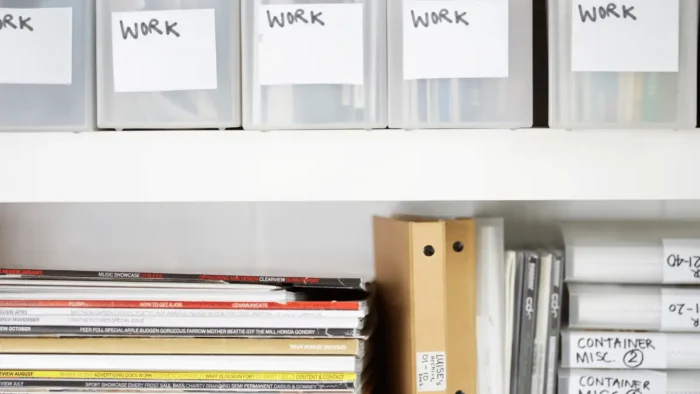Increasing productivity in your small business is one of the most significant imperatives for you as an entrepreneur. More productive business means better business results for you and your customers. But, business productivity also depends on your employee’s productivity. How can you expect your business to become productive if you and your employees are not productive?
Your business productivity will depend on your productivity, the productivity of your employees, and on the productivity of other systems that you have created, and on which will be based normal operations of your small business. Because of that, every improvement in one of these three areas will improve your overall business productivity. And these days, it is simple to measure employees’ productivity using software like employee productivity tracking software.
For example, we can use the math equation to explain this:
BP = EP + EmP + SP
where:
- BP – Business Productivity
- EP – Entrepreneurial Productivity
- EmP – Employee’s Productivity
- SP – System’s Productivity
Now, let’s see what you can do to increase the amount of employee productivity. Here are seven tips that you can implement.
1. Setup Clear Goals if You Want to Increase Employee Productivity
Always be sure that your employees’ goals you have set up and need to be accomplished are always clear. Unclear goals will bring uncertainty and confusion when your employees work on their everyday work tasks. You don’t want this uncertainty and confusion to bring negative consequences for your small business because if this is the case, the productivity of your employees will be on the lowest possible level.
When your employees know precisely what they need to do, they will do that. They will not lose time thinking about the results they will need to produce. This means better employees’ productivity. And if each of your employees improves their productivity, your business productivity will also be higher.
2. Productive Workplace
Make your work environment as much productive workplace as you can. The closest environment where your employees work and do the job on an everyday basis in your company can substantially affect their productivity. It would be best to think about possible interruptions, noisiness, properly organized working place, and everything where the job is done from your employees’ side.
Related: How to Be More Productive at Work in This Messy Business Environment
Make sure that all workplaces are kept clean, organized, and ready for work each day. Also, ensure that all tools or equipment that the specific workplace require to be used will be organized for employees in that workplace. This will help you improve employees’ productivity.
3. Providing Necessary Tools to Increase Employee’s Productivity
Provide all necessary tools that your employees will need for a maximum productive workflow. Now, you are sure that the goals are clear and already understood by your employees. Also, you are sure that the working environment is clean and organized.
So, you can go one step further to ensure their working environment is one of the most productive environments. You can think about possible tweaks of other elements related to the job as tools that they will need to use daily to accomplish their working tasks. These tools will increase your employee’s productivity.
First, be sure that every possible tool required for tasks accomplishment will be there, in the right and most appropriate place, and easily accessible from the employees who will need that tool.
Related: 7 Steps Framework to Achieve All Your Business Goals
4. Use Rewards to Increase Employee’s Productivity
Use rewards for your most productive employees, not the busiest ones. This fourth tip is about motivation. You already know that motivation is something that can have a powerful effect on productivity. But, you have to be cautious when it comes to motivation, especially about the rewards. Always reward only your most productive employees, and not the busiest ones. Busy persons aren’t the most productive persons.
You don’t need only financial rewards. Sometimes recognition can become a more important motivational factor than financial reward. So, experiment with different motivational options, test them, and choose several that bring the best results for you.
You want to motivate as much as possible employees to work on the improvements of their own productivity. If you succeed in this your business will become more productive.
Related: Uncovering the Psychologists’ Theories of Motivation: What Drives Human Behavior?
5. Understanding Their Roles
Your employees will need to understand their rules in your company. Help them to understand their role in your small business. Clear goals will show them the road that they will need to pass. But you are the entrepreneur. You are the person who is responsible for effectively managing your employees. Because of that, you are responsible for helping them understand their role in your small business’ success.
Related: 6 Steps to Increase Business Productivity Next Week
Because of that, you need processes with standardized operating procedures. Only with strong procedures, each employee will know what their role is in your company.
6. Limit Meetings in Your Organization
Use meetings only when they are really necessary. Meetings are important ways of communication in your small business, but they can often become the most unproductive process when it comes to productivity. Because of that use meeting only when you really need them.

If you really need to use meetings, then you need to implement some important procedures regarding the meeting. For example,
- Always use agenda with clear points about each topic of the meeting.
- When you send the agenda with the invitation, also send the rules for the meeting.
- Moderate the meeting according to the rules and agenda.
In such a way, you will ensure productive meetings in your small business.
7. Fluent Communication System
Implement a fluent communication system between your working team. ToToday’say of doing things in every small business is primarily based on communication between all members of your working team. Why not use the technology that will help you in improving the overall communication process in your company? There are many tools. Find the best suitable for your business and implement them in everyday work.
Question: How are you dealing with increasing your employee’s productivity?



